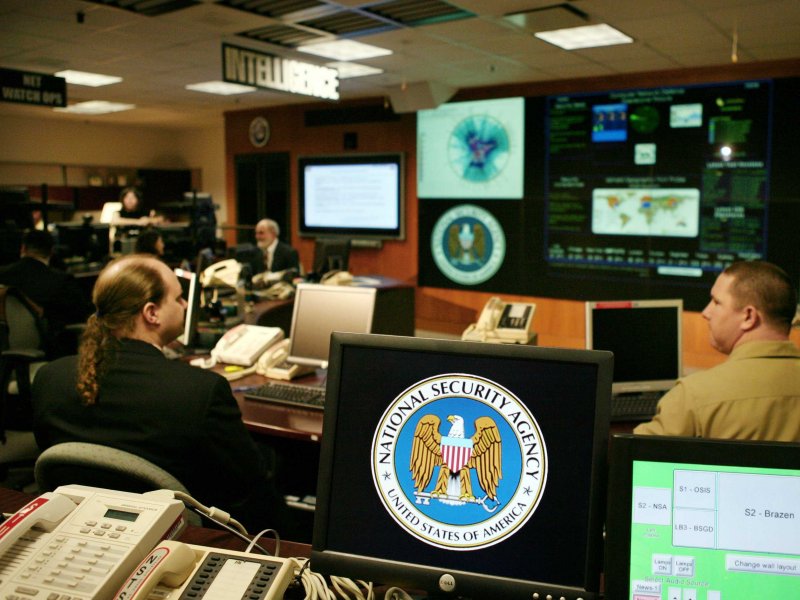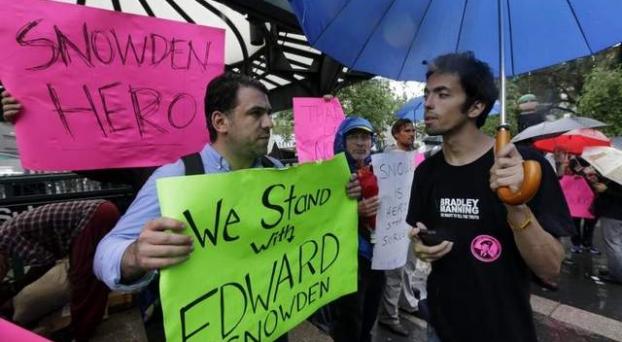ON THE NSA LEAK AND SNOWDEN
By Alexander Gamero-Garrido
 For weeks, the American media couldn’t get enough on Edward Snowden and his revelations regarding the mass surveillance programs of the National Security Agency (NSA).
For weeks, the American media couldn’t get enough on Edward Snowden and his revelations regarding the mass surveillance programs of the National Security Agency (NSA).
The public heard arguments from the Obama administration featuring massive symbolic power such as “we could have prevented 9/11”. And we’ve also seen analysts claiming “It’s time to call the N.S.A.’s mass surveillance programs what they are: criminal.”
With the goal of obtaining an insight in addition to mass media – which, as we Venezuelans know particularly well, is not sufficient – we asked a few questions to MIT’s Technology and Policy Program student Justin Montgomery.
Guayoyo en Letras: What was your first reaction to the release of NSA mass surveillance programs, and how has that changed with the Obama administration arguments?
Justin Montgomery: I was honestly not that surprised. I always just assumed that this kind of government surveillance took place, given the authorization that the Patriot Act gives the executive branch. I felt like the media was overhyping the whole thing and many people were getting swept up in this media-induced fervor without taking the time to actually understand the situation or think critically about it.
G.L.: Do you think there is an actual dichotomy between the right to privacy and the fight against terrorism?
J.M.: Definitely not. I think that is a false dichotomy that people try to draw which makes judging surveillance issues like this one very difficult, if not impossible. There are tradeoffs between privacy and national security and where the line should be drawn is probably going to vary from one situation to the next.
G.L.: In your very particular environment, has the NSA surveillance caused a big baffle? Or has it gone under the carpet?
J.M.: With regard to the reactions of people I know, I think it hasn’t made a huge impact. Certainly it hasn’t changed anyone’s previous opinions. The people that I know that are most bothered by it and most likely to bring it up are the same people that were already extremely suspicious of the government and very libertarian. I think this is just another talking point for them but for most people I think they took it as just another news cycle.
G.L.: Finally, what are your thoughts on Snowden? Is he a hero or a traitor?
 J.M.: It seems like every news story needs a face or a name to go with it! I don’t really have any strong opinions about what should happen to Snowden. I’m not sure that he did anything ethically wrong but he did break the law (while technically the NSA did not). I don’t think he thought he was doing anything wrong but obviously the U.S. government doesn’t see it that way. He’s just a whistleblower on the wrong side of the law, but hey, he knew what he was getting himself into.
J.M.: It seems like every news story needs a face or a name to go with it! I don’t really have any strong opinions about what should happen to Snowden. I’m not sure that he did anything ethically wrong but he did break the law (while technically the NSA did not). I don’t think he thought he was doing anything wrong but obviously the U.S. government doesn’t see it that way. He’s just a whistleblower on the wrong side of the law, but hey, he knew what he was getting himself into.
A few final comments
According to a poll published by The Washington Post, Americans have divided opinions regarding if Snowden should be charged after his leaks. Something they mostly agree on though is that there should be public hearings in Congress regarding the mass surveillance programs.
Regardless of public opinion, this issue is worrying. An agent needs to be only 51% sure that the communication to intercept relates to a foreign citizen not present in the United States, and once the process is started that person, and potentially anyone who gets in touch with her, will have her information intercepted and stored in the agency. In a world where there is such a massive amount of private information available in the net, such an invasion to privacy is unacceptable.
In the words of UN’s and OAS’s special rapporteurs “In this context, the special rapporteurs reiterate their concern at the existence of programs and security policies that could cause serious harm to the rights to privacy and to freedom of thought and expression. Consequently, they urge the corresponding authorities to amend the pertinent legislation and modify their policies in order to ensure that these programs measure up to international human rights principles.”
Terrorism is a common enemy for every rational and not religiously fanatic human being, but this is no argument to agree on giving the government such ample powers. In the end, we should not all be treated as alleged terrorists.
PS: we decided not to deal with Venezuelan President Nicolas Maduro’s statement offering Snowden asylum, because we are convinced that if there were to exist a Venezuelan alter ego to Snowden, say, in Venezuelan intelligence police SEBIN, the whistleblower would be fiercely prosecuted by the government. As such, that statement isn’t but an irrelevant and pretentious announcement.
Twitter:
Alexander Gamero-Garrido@AlexGameroG
Justin Montgomery @jmonticus
- Mi «guayoyo» desparramado por el diccionario - 18 mayo, 2025
- Lo que hay que saber sobre la declaración de ley marcial en Corea del Sur - 4 diciembre, 2024
- Bitcoin, imparable: a cuánto puede llegar su precio en medio del “efecto Trump” - 24 noviembre, 2024
